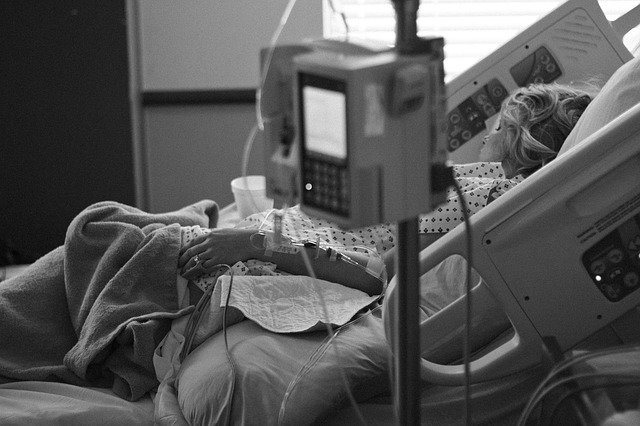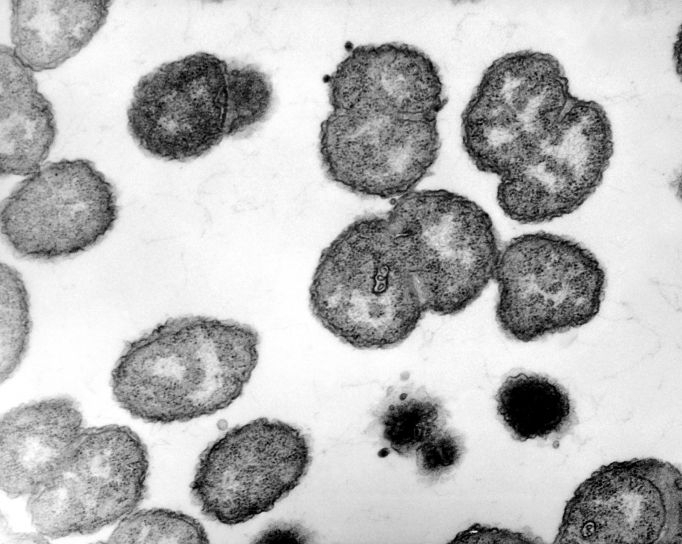This year has not been kind to people around the world, as the Coronavirus pandemic has affected everyone either directly or indirectly. Even as the year is about to end, "super gonorrhea" is trending on Twitter and according to a report, COVID-19 is responsible the spike in the disease.
Gonorrhea is a sexually transmitted bacterial infection that infects both males and females. It often affects the urethra, rectum, or throat and in females, it can also infect the cervix. The disease spreads most commonly through vaginal, oral and anal sex. However, now doctors are warning of the increasing spread of the antibiotic-resistant strain of STI, and they are blaming the COVID-19 for helping it gain momentum.
According to a recent report, the unnecessary overuse of antibiotics during the pandemic has created a rise in drug-resistant strains of super gonorrhea. The Sun reported that the problem has become so bad that the World Health Organization (WHO) has taken notice.
The Dominance of Super Gonorrhea
A common antibiotic, Azithromycin, is used to treat chest and sinus infections. During the pandemic, to prevent co-infection of hospitalized COVID-19 patients and to treat inflammatory symptoms of severe infections doctors have used the antibiotic.
But the widespread use of the drug, which has since been found to have no clinical benefits for the Coronavirus infected patients, has caused a buildup of resistance to the bacteria that causes the sexually transmitted diseases, said WHO.
Noting the use of azithromycin in the early months of the Coronavirus pandemic, a WHO spokesman said that overuse of the antibiotics in the community "can fuel the emergence of antimicrobial resistance in gonorrhea".

Antibiotics have saved countless lives and helped mankind to get rid of problematic microbes. But, unfortunately, over the years, many microorganisms we fought using antibiotics began to find ways around them. Now, several types of antibiotic-resistant bacteria are living in the environment, and these superbugs need more complex treatment that sometimes includes multiple drugs or newer versions of medicines that are not compromised.
As per the experts, the bacteria that causes Gonorrhea has adapted to common first-line treatments. The WHO spokesperson said that during the pandemic STI services have been disrupted, which means that "more STI cases are not diagnosed properly with more people self-medicating as a result".
"Such a situation can fuel the emergence of resistance in gonorrhea including gonorrhea superbug (super gonorrhea) or gonorrhea with high-level resistance to current antibiotics recommended to treat it," the spokesperson added.
The worst part is that many people reporting a new gonorrhea infection is growing every year. It means that more and more people are getting the infection, and the antibiotic-resistant strain of the bacteria has an even larger population to further its adaptation to drugs and other treatments.
The recently published report cited a US study that showed 71 percent of Coronavirus infected patients were given antibiotics, while only four percent actually needed them. Kevin Cox, executive chairman of UK start-up Biotaspheric Limited, said how all of this is leading to the rise of super gonorrhea, and warned that the disease could become untreatable.
Dr. Hanan Balkhy, WHO's assistant director-general for its antimicrobial resistance division, said: "The use of antibiotics will not treat [COVID-19], but it will create resistance among bacteria that already exists in our bodies." So, according to him, the bottom line is "antibiotics should not be prescribed unless there is a clear medical indication for them". Recently, the Centers for Disease Control and Prevention (CDC) in the US, said gonorrhea cases have increased 63 percent since 2014.

Symptoms
Symptoms of gonorrhea infection in men include:
- Painful urination
- Pus-like discharge from the tip of the penis
- Pain or swelling in one testicle
Symptoms of gonorrhea infection in women include:
- Increased vaginal discharge
- Painful urination
- Vaginal bleeding between periods, such as after vaginal intercourse
- Abdominal or pelvic pain
Gonorrhea can also affect these parts of the body:
- Rectum: Signs include anal itching, pus-like discharge from the rectum, spots of bright red blood on toilet tissue, and having to strain during bowel movements.
- Eyes: Gonorrhea can cause eye pain, sensitivity to light, and pus-like discharge from one or both eyes.
- Throat: Symptoms of a throat infection might include a sore throat and swollen lymph nodes in the neck.
- Joints: If one or more joints become infected, the affected joints might be warm, red, swollen, and extremely painful, especially during movement.









